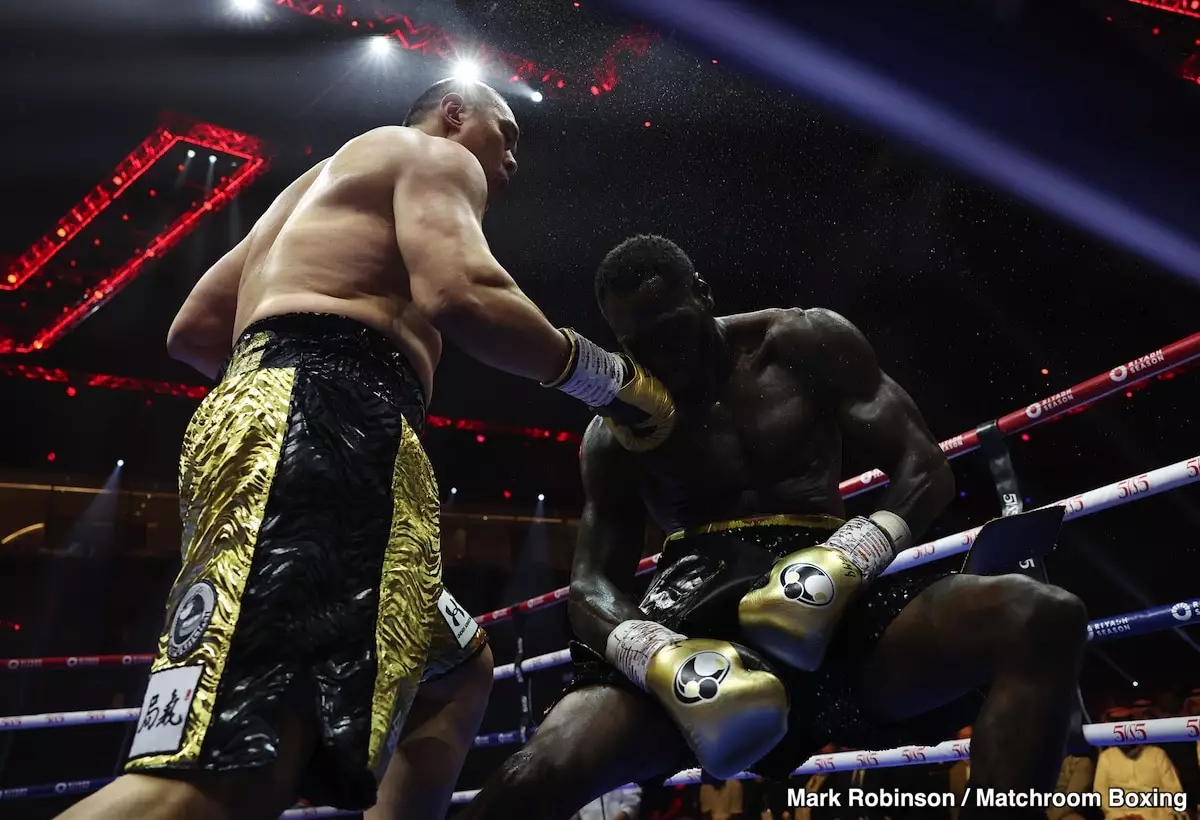Deontay Wilder, once the pride of heavyweight boxing, now finds himself at a critical juncture in his career. With a professional record of 43 wins, 4 losses, and 1 draw—42 of those victories achieved by knockout—it is stunning to consider the current state of his boxing journey. The former WBC heavyweight champion experienced a devastating series of losses, winning only once in the past five years. The nadir came following his 2025 fight, where his skills and mental fortitude will be tested like never before.
Malik Scott, Wilder’s trainer, has made it clear that the gravity of Wilder’s next matchup may very well cost him everything he has built. Scott’s assertion that Wilder’s career hangs in the balance speaks volumes about the pressure the 39-year-old boxer is under. Since taking over as Wilder’s coach in 2021, the fighter’s record under Scott’s guidance is hardly remarkable at 1-3. This dismal performance has led to speculation and criticism, as fans wonder whether a shift in coaching was the root cause of Wilder’s decline.
One theory suggests that Wilder’s diminishing performance may be linked to what many consider a natural decline in motivation. Often referred to as “the hunger,” this drive is crucial for any elite athlete. With an estimated net worth of $30 million, there is a sentiment that the boxer no longer possesses the same relentless determination that fueled his ascent when he first entered the squared circle in 2008. While Scott points toward Wilder’s affluence as a factor, the boxer’s recent struggles can also be seen as a byproduct of drastic changes in fighting strategy.
Scott’s decision to pivot Wilder from his traditional slugger style into a more nuanced boxing approach has proven controversial. The training camp under Scott focused on technical skills rather than the power and aggression that defined Wilder’s earlier bouts. This transformation has left critics questioning whether it is wise to overhaul a fighter’s style so deeply, especially at this late stage of their career. The impact has been evident: Wilder’s performance against Joseph Parker, in which he avoided engagement for the entire bout, underscored that perhaps the boxer is not adapting well to his trainer’s vision.
Wilder’s decision to remain loyal to Scott raises eyebrows. It remains unclear if this loyalty will pay off or serve as a continued anchor weighing him down. His unwillingness to rotate trainers—perhaps in favor of the more traditional styles promoted by his former coach Mark Breland—highlights a stubborn adherence to a method of training that may not yield the desired results. The next fight in 2025 serves as a potential reckoning; not only for Wilder’s employment of Scott but also for his standing as a contender in the heavyweight division.
As Wilder prepares for this upcoming battle, Scott acknowledges the daunting task ahead. With two consecutive losses to fighters like Zhilei Zhang and Joseph Parker, the road back to championship contention looks treacherous. Scott explains, “We have to see how 2025 comes out,” hinting at the potential volatility surrounding Wilder’s future in boxing. With every passing moment, the urgency for Wilder to reclaim his former glory becomes increasingly paramount.
The aftermath of the 2025 fight might reveal whether Wilder can revitalize his career or if he will become another name on the list of once-great heavyweights. The boxing world is watching with bated breath; both his performance and the resultant choices he will face pose the ultimate question—can Wilder resurge as a heavyweight force, or is this the beginning of the end for a man who once stood atop the boxing world?
Wilder’s trajectory will hang in the balance as he approaches what could be his most defining moment yet. The dichotomy of skill versus strategy will play out in public view, inviting scrutiny and fascination alike. Where Wilder’s journey leads, only time will tell, but a critical year looms on the horizon, shaping how he will be remembered in boxing history.

